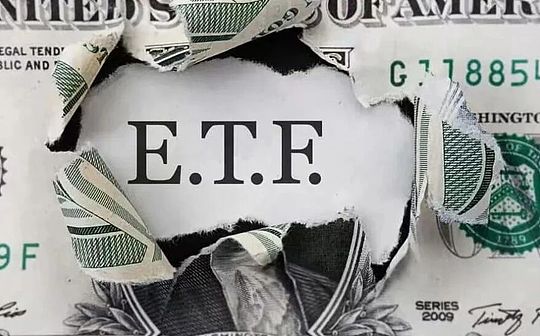
Author: taxdao
Brazil is the largest country in South America, with a population of more than 214 million, and is the fifth largest in the world and the sixth largest country in the world.In addition to supporting GDP because of rubber and wood, Brazil is also the world’s largest exporter of beef and soybeans in the world.After Brazil’s independence until 1985, the country accepted a populist and military government’s rule of more than a century, and then formulated a constitution in 1988, and defined the country as the Democratic Federal Republic.After that, Brazil was conducive to the transfer of industrial activities in the 1990s to low -cost countries, and accompanied by foreign investment, better education and increased domestic consumption, it became an important participant in the global economy.One of the emerging markets.
The evolution of the Brazilian cryptocurrency market is a significant issue in the global digital financial market.Today, Brazil is one of the top five countries in the world with the most cryptocurrency investors. It has more than 10 million cryptocurrency investors, accounting for about 5%of its population, second only to India, the United States, Russia, and Nigeria.In addition, the growth rate of the Brazilian cryptocurrency market exceeds the traditional stock market, and there are about 4 million investors in Brazil’s major stock exchange B3.HashDex, the country’s leading cryptocurrency asset management company, reported that in 2021, the number of cryptocurrency investors increased amazing by 938%.This index -level growth shows that the Brazilian financial pattern has changed significantly, reflecting people’s cognition and confidence in the growing knowledge of cryptocurrencies as feasible investment instruments.
1. Overview of basic tax policies in Brazil
Brazil’s tax system is extremely large, covering multiple fields, including personal income tax, corporate income tax, VAT tax (VAT), etc.This complex taxation structure is one of the high tax rates worldwide. Its main organizations are the Brazilian State Taxation Bureau (RFB) and is responsible for taxation and management.In the field of personal income tax and corporate income tax, Brazil adopts a progressive tax rate, while VAT is levied by the Federal and State Government.Social Security Tax (CSLL) is an additional surcharge to support the country’s social security system.In general, Brazil’s tax policy is known for its complexity and high tax rates, which may have an impact on the competitiveness of enterprises and international investment.
1.1 Federal Tax
1.1.1 Corporate Income Tax (IRPJ)
There are two types of Brazilian corporate income tax, one of which is named Imposto de Renda de Pessoa Jurídica, which literally means that Pessoa Jurídica is income, which is corporate income tax.The REGU LAMENTODO IMPOSTO De Renda is the Law No. 3000 issued on March 30, 1999. The decree includes three parts: personal income tax, corporate income tax and pre -income tax.EssenceAccording to the above laws, the tax rate of corporate income tax is 15%of the taxable income, and the annual taxable income of more than 240,000 Lial needs to pay an additional 10%additional tax.Simply put, some tax rates with a profit of corporate profits below 240,000 are 15%, and part of the tax rate of more than 240,000 Real is 25%.Brazilian corporate income tax includes basic taxes and surcharges, which are levied 4 times a year. The deadlines are the last day of March, June, September, and December.
In 2014, the Brazilian central bank announced that cryptocurrencies were not legal currencies, so they were not subject to legal constraints.Nevertheless, Bitcoin and other currencies are still controlled by taxation.Therefore, the Receita federal (federal income service) requires local encrypted users to submit their income.If you obtain more than BRL35000 by buying and selling, the profit of the income must be taxed at the income tax, and 15%of the profit is collected by the state through the annual tax declaration form.In other cases, tax -free is applicable.
1.1.2 Personal income tax (IRPF)
For Brazilian citizens or individuals who have permanent residence permits in Brazil, personal income tax is required.Its personal income, interest, and rent are taxable income, which uses a progressive tax rate, with a maximum tax rate of 27.5%.
Among them, taxpayers are divided into residents taxpayers and non -resident taxpayers.Residents should pay taxes on global income.Individuals other than residents are non -residents, and they only pay taxes on their source in Brazil alone.The married couples who respond to taxes can be reported separately if the property has been divided. If the property is shared, the non -householder can only report taxes separately to specific income items.Taxable income is deducted from the legal deduction projects such as business income, investment income, employment income, and independent job income, and the cumulative net income obtained by the deduction projects, and then subtracting the calculation of the prohibited project.
The Brazilian State Taxation Agency issued 1888 stipulated that it is suitable for various activities related to cryptocurrencies. If the monthly transaction amount exceeds 30,000 Brazilian Lial ($ 7,800), Brazilian citizens are obliged to report to the National Taxation Bureau of the National Taxation BureauEssenceIf the report is not reported truthfully, a fine of 1.5 % to 3 % of the unreasonable transaction amount will be faced.After that, Brazil’s Federal Revenue (RFB) announced that investors in the Brazilian crypto asset market must pay personal income tax for transactions involving cryptocurrencies, such as Bitcoin and Ethereum.The Brazilian Senate approved a new personal income tax bill on November 29, 2023. Brazilians will be required to pay 15%of the income generated by the income generated by cryptocurrencies held by foreign exchanges.According to the bill, any Brazilians who earn more than 6,000 Brazilian (about 1,200 US dollars) have been earned in the Brazilian Exchange.Brazil incorporates taxes on the income of the realized capital to pay taxes and the company’s income is calculated without establishing another capital gain.Among them, capital gains tax also applies to the progressive tax rate of personal income tax.
1.1.3 Other tax
Other taxes can be divided into net profit social contribution fees (CSLL), income tax (PIS and COFINS), industrial product tax (IPI), tariff (II), and financial trading tax (IOF).
1.2 State Tax
At the state level of Brazil, there is a main circulation tax (ICMS). The tax is paid during the circulation of goods, and the tax rate is usually between 17%and 19%.Cross -state transactions or transportation may also lead to additional cross -state ICMS, and the tax rate has changed according to the exchange in the state.
1.3 Municipal Tax
The municipal tax at the city level is mainly service tax (ISS or ISSQN), and the tax rate changes between 2%and 5%.According to the Brazilian tax law, the tax base of ISS is the contract price of the project, and the actual tax is usually carried out in the place of labor.
1.4 Other expenses
Among other expenses, social insurance (Inss) is a social security fee paid by employees and enterprises for employees.InSS’s payment method includes that enterprises pay by 20%of employees ‘salary and deduct 11%in the era of owners’ payment.In addition, the working age protection fund (FGTS) is a benefit fee paid by the enterprise for employees, and the monthly payment amount is 8%of the salary of employees.
2. analysis
The Brazilian government’s tax policy for crypto assets is still in a relatively vague stage.The legal status of encrypted assets has not been clearly defined, and its classification and taxation policy have not been clearly stipulated.This makes the entire digital asset industry face uncertainty and variables.Lack of clear legal frameworks may lead to legal risks and investment uncertainty in the crypto asset market.
2.1 Brazilian cryptocurrency overview
The Brazilian Federal Republic is widely regarded as one of the most friendly countries in the world to cryptocurrencies. Its regulations and policies aims to promote their citizens to adopt cryptocurrencies and other digital assets.In December 2022, Brazilian President Jair Bolsonaro signed a bill to provide a comprehensive regulatory framework for the use and transaction of domestic cryptocurrencies, so that cryptocurrencies were legalized as a payment method in the country.According to the text text, Brazilian residents will not be able to use cryptocurrencies such as Bitcoin as the legal currency of the country, just like the situation of Salvador.However, the new law includes many digital currencies under the definition of the legal payment method of Brazil.It also established a license system for virtual asset service providers and punished fraud using digital assets.
In 2022, Brazil passed the Act 4401/21,Incorporate Bitcoin and other digital assets into the ranks of financial assetsIt marks the fundamental change of domestic cognition of cryptocurrencies.The subsequent bill 14.478/22 was further developed and defined virtual assets as a digital manifestation of electronic transactions, transferringing,.Prospective in cryptocurrency supervision.These legal changes highlight the evolution of Brazil’s global digital economy, bringing opportunities and challenges to market venture capital, and emphasizing the necessity of comprehensive understanding and strategic adaptation of supervision transformation.
2.2 Brazilian encryption tax policy
In 2019, the Brazilian Federal Taxation Agency issued a standardized instruction No. 1888.It has a significant impact on the taxation of Brazil’s cryptocurrency operations.The content includes a capital gains tax only in a cryptocurrency transaction with more than 35,000 Brazilian Real within a month.Taxes are 15%of capital income, that is, the difference between the sales price of cryptocurrencies and the purchase price, which is suitable for the part that exceeds the tax exemption.The deadline is the last working day after taxable transactions.
The normative instructions of No. 1888 are divided into three categories: Bitcoin, other digital currencies (such as Ethereum, Ripple, BCH, USDT, ChainLink, etc.) and other encrypted assets.For monthly sales of less than 35,000 Brazil, capital income can be exempted.For the case of sales of more than 35,000 Rayar, capital profits are taxed at a tax rate of 15%.Capital gains tax also includes a progressive tax rate for larger transactions, such as more than 500,000 Royal, and the tax rate ranges from 15%to 22.5%.Investors need to calculate and pay taxes through Darf (Documentode Arrecadaçãode Receitas Federais).All transactions involving cryptocurrencies must be reported in the annual income tax declaration.
The Brazilian New Tarcoma Tax Act takes effect on January 1, 2024. The Brazil Senate passed the new income tax rules on November 29, 2023, stipulatedBrazilian citizens need to pay as much as 15%of taxes for cryptocurrency income held in foreign exchangesEssenceAccording to the bill, any Brazilian citizen who earns more than $ 1,200 (6,000 Brazilian Lial) will be subject to this tax constraint from January 1, 2024.This pioneering legislation is not limited to cryptocurrencies, but also covers wider overseas investment, including profits and dividends from cryptocurrencies.Foreign investment funds, platforms, real estate and trusts.
The Brazilian government is expected to generate about 20 billion Real ($ 4 billion) in 2024.In order to encourage the provisions as soon as possible, taxpayers who pay these taxes in 2023 can use 8%of the income earned by 2023 to reduce tax rates and start payment in December.From 2024, the tax rate will increase to 15%.It is worth noting that overseas revenue does not exceed 6,000 Brazilian Lial ($ 1,200) to exempt this tax.
2.3 Brazilian encryption asset supervision framework
In September 2023, the President of the Central Bank of Brazil announced that, in view of the popularity of cryptocurrencies in Brazil’s popularity and adoption rate of 44.2%.Due to the intensified design of design tax evasion and crimes related to cryptocurrencies, the Brazilian central bank has plans to close the supervision of the cryptocurrency market.
2.3.1 License and registration
Act No. 4401/21 Brazil laid the foundation for the supervision of the virtual asset service provider (VASP), and defined virtual assets as a digital performance that can be transactions, transfer, and investment purposes.According to the bill, the services provided by VASP include the exchange of virtual currency and the legal currency, the exchange between virtual assets, the transfer of virtual assets, hosting or management, and participating in financial services related to virtual assets.In Brazil, as a cryptocurrency broker, it is forced to obtain the approval of CNPJ (national legal person registration book) and CONAR (National Advertising Self -Regulatory Council).This bill marks an important step in Brazil’s cryptocurrency supervision and provides investors and entrepreneurs with more security guarantees.The clarification and credibility of supervision pave the way for the new investment channels, attracting institutions and traditional market investors to enter the field of cryptocurrency in Brazil.Act 14.478/22, which was effective in 2023, was a milestone, which further defined the guidelines for the supervision of virtual asset service and provided greater security for cryptocurrency investors.
2.3.2 Investor protection and punishment
The Brazilian New Act introduced fraud against virtual assets, imposing penalties for 4 to 8 years and punishment.This makes victims that have not been legally registered in Brazil in Brazil, it is easier to claim rights.The government plans to formulate special rules to punish such criminal acts, which includes not only MLM scams, but also reduces fraud activities involving cryptocurrencies, which aims to improve the security and reliability of virtual assets.In addition, users can understand which companies have obtained permits and are easier to distinguish illegal companies.
3. The future policy trend of Brazil’s encryption asset supervision
Brazil’s cryptocurrency market supervision is developing rapidly to meet the growing demand.Although there are supervision and bureaucracy in most fields, the Brazilian Central Bank and CVM have taken some positive measures to rectify this phenomenon to promote the innovation of blockchain.The launch of CBDC has made start -up and fintech companies developing and solving related issues in Brazil.The current trend shows that fintech companies use blockchain technology and CBDC infrastructure to seek solutions for financial and payment markets.Some startups have received funds from large investment funds, such as Lumx have received investment from BTG Pactual Bank and pre -financing of BRLA seeds.The entire Latin America has improved its geographical advantage for the development of blockchain initial foundes due to strict supervision, high inflation, and difficulty in obtaining international assets.The progress of CBDC and tokens has spawned the establishment and development of other start -up companies. Most of these companies focus on the implementation of upstream and downstream conversion and use of token national bond innovation guarantee credit solutions.Blockchain technology is not limited to financial markets, but also releases value in the fields of agriculture, activities and physical assets.Asset -based currency has improved the efficiency of various fields through the secondary market and liquidity.In emerging countries, the agricultural market is particularly important. Existing applications provide financing for agricultural operations through different assets through token, such as Agrotoken.
In general, the Brazilian government may show a relatively open posture of encrypted assets, trying to achieve a balance in emerging industries in regulatory regulations.However, the lack of clear regulations and regulatory frameworks has made the legal status and tax treatment of digital assets still uncertain.The government may pay close attention to the development of the digital asset industry in order to formulate a clearer and flexible tax policy, while protecting the stability of investors and markets.The direction of future policies may be jointly affected by the economic conditions, market demand, and international regulatory trends at home and abroad.While the Brazilian government is expected to adapt to the development of digital assets, it will promote industry innovation and sustainable development by formulating clear regulations and tax policies.By comparing with international tax trends, Brazil can better determine its position in the global digital asset market, helping its economic diversification and sustainable growth.
Reference
[1] Wei Qingfeng & amp; Cui Rui. (2022). Brazil’s taxation system and EPC general contracting project tax planning. China General Accountant (07), 140-142.
[2] Brazil House (2022). 4401/2021 Act
[3] Brazil House (2023) .4173/23 Act
[4] AvalonCapital Avaron Capital (2023). The development of Brazil cryptocurrency market supervision: impact and trend







